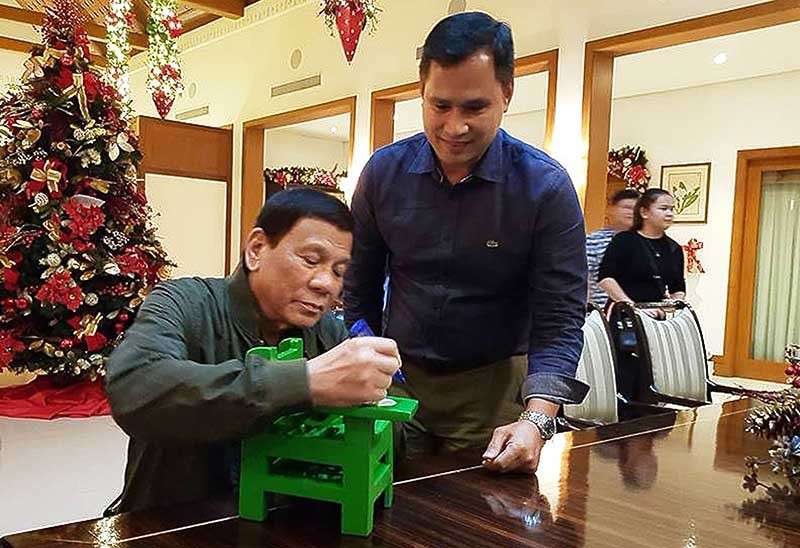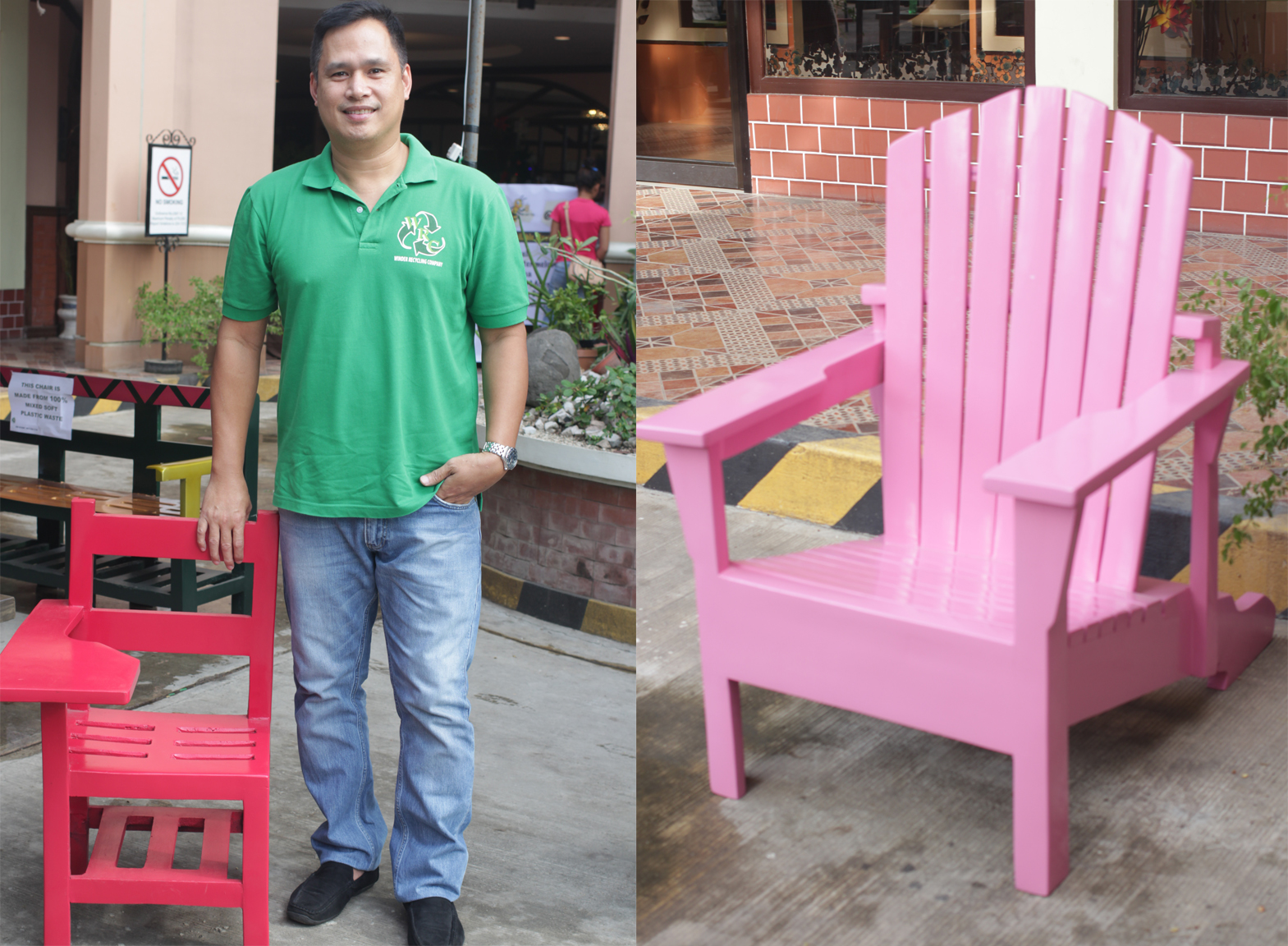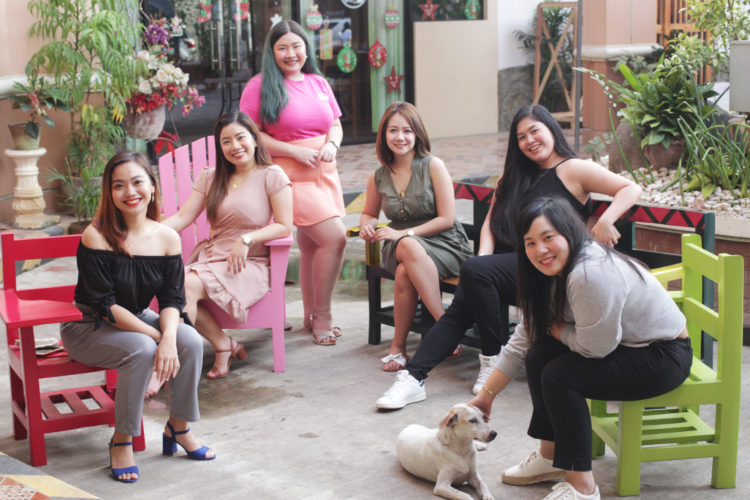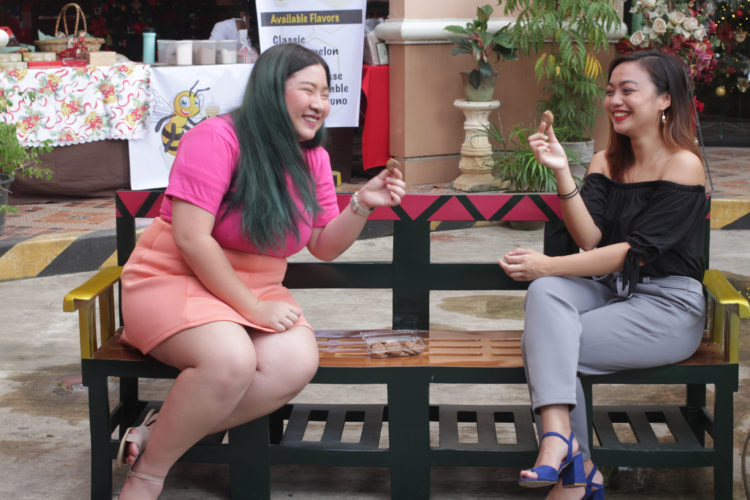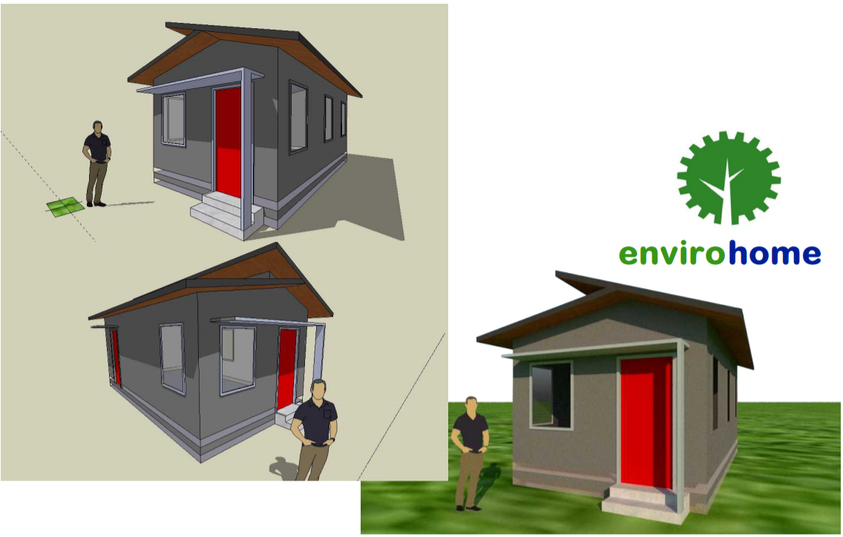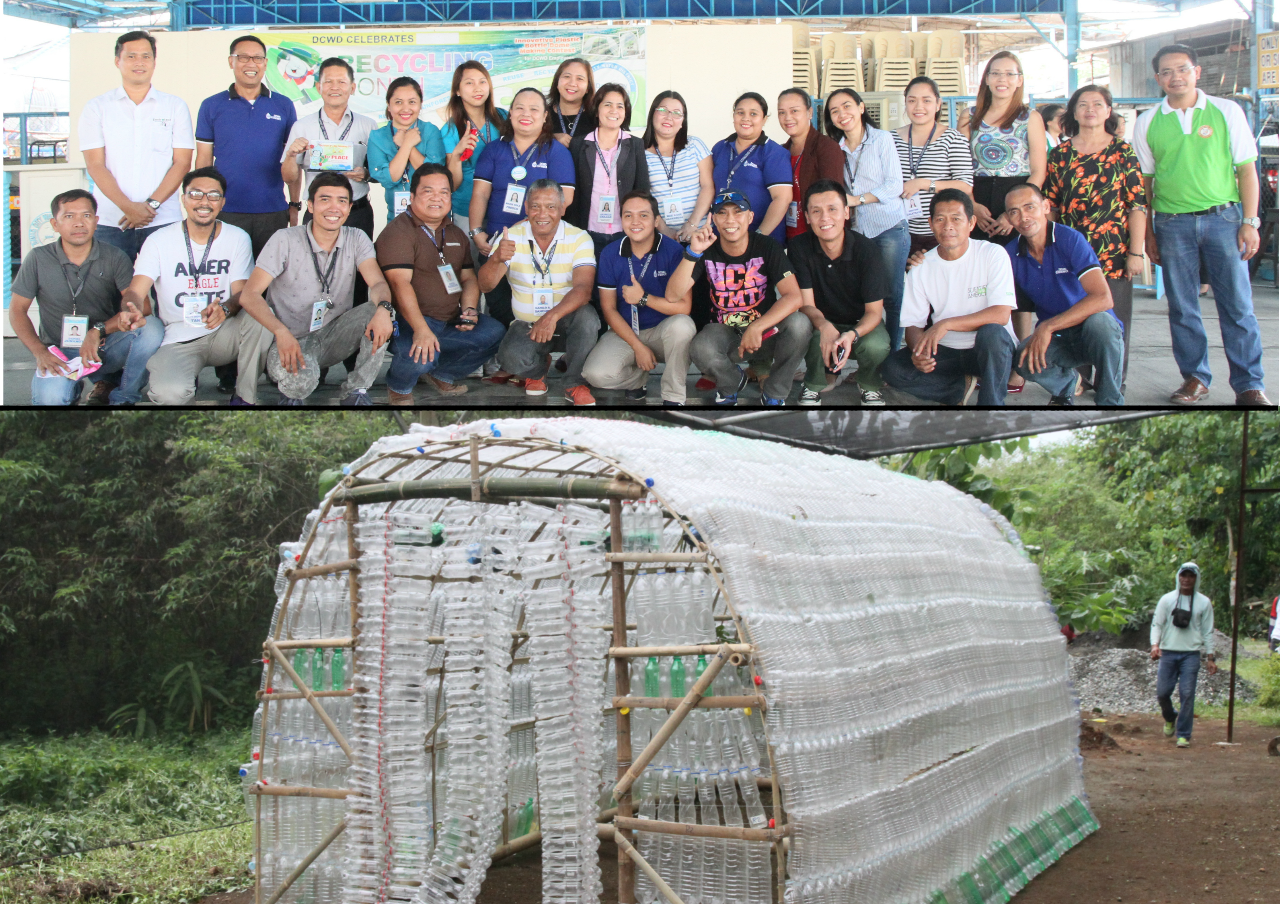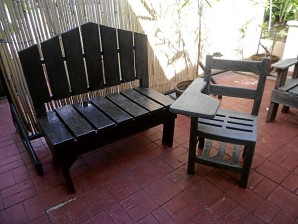HIS story of recycling trashed plastics and making these into colorful school chairs went the rounds in social media as it grabbed the attention of several television news programs in the past three months although Winchester O. Lemen, the man behind the plastic chairs and founder of Envirotech Waste Recycling Inc. (Envirotech), has been at it since 2010.
Just before New Year, Lemen with his family paid a courtesy call on President Rodrigo R. Duterte in Bahay Pangarap, the official residence of the President in Malacañang, where the President got to see a prototype of Envirotech’s school desk and affix his signature on this.
The bigger story, however, is not about the colorful plastic school chairs.
Rather, it is in Envirotech’s trade secret and breakthrough technology.
Melting point
Lemen developed a technology that could melt all kinds of trash plastics all in one furnace.
“Kahit sinong itanong mo na scholar diyan, sasabihin sa iyong: Cannot be,” he said.
There are seven major kinds of plastics: The Polyethylene Terephthalate (Pete or Pet), most commonly used to make containers for packaging foods and beverages, personal care products, and many other consumer products; High-Density Polyethylene (HDPE) commonly used for corrosion resistant pipes, geomembranes, and plastic lumber; Polyvinyl Chloride (PVC) used for a wider range of applications like drainpipes and fittings, flexible films and tubes, cables, and others; Low-Density Polyethylene, whose most common use is for plastic bags and dispenser bottles; Polypropylene (PP), widely used in the industrial sector because it is stiffer and resistant to chemicals and organic solvents; Polystyrene or Styrofoam (PS); and miscellaneous plastics that include: polycarbonate, polylactide, acrylic, acrylonitrile butadiene, styrene, fiberglass, and nylon.
Most recyclers can only do Pet, PP, and PVC. But only separately. Like the most recycled plastics in Mexico, which is high in plastic recycling, is PET.
All seven plastics have different applications, strengths, properties, and melting points ranging from 105 Centigrade to 250 Centigrade. This is where the tricky part comes. Because of their different melting points, the different kinds of plastics are best melted separately and at different lengths of time lest some will already be turned into ash while others will become toxic before the rest could melt.
Lemen figured how to just mix them all up, a breakthrough seen to be impossible by recyclers, including international ones.
From cannot be, it became can be.
Recycling polybags
Lemen worked on this technology after finding himself eased out of the recyclable plastics market where he started out.
“Noong nire-recycle ko na, nakita na ng iba. Sabay-sabay silang pumasok ngayon. Nakita nila, big ang market ng banana. Imagine, one hectare (of banana plantation) is 1,000 hills and 1,000 plastic bags is eight kilos of plastics, 50,000 hectares ang buong sagingan sa Mindanao. Ang dami noon,” he said.
He ended up being eased out because the bigger recyclers, including Taiwanese, can afford to buy them at a higher price. The competition grew such that from a very low P3.50 per kilo, the price of used polybags is now at P14 per kilo.
The mother of innovation
This did not discourage him. He instead focused on what plastics are not being recycled. He found out that plastic wrappers are what made up a bulk of residual wastes that all end up at the city landfill. Nobody in the recycling business wants them.
“Naisip ko, sige, try natin na dito tayo sa hindi na nila napapakinabangan (Let’s work on these waste that no one needs), he said.
His experiment took six years.
Having been able to melt the assorted plastics together and produce a material that has the strength, the result became the foundation of Envirotech now: assorted plastics including candy and detergent wrappers made into durable products, such that the tiebox that he now produces is greater in strength than what his competitors in the used polybag market could make.
Envirotech was thus born in June 2010 and has since been improving on its technology and products while providing communities and local government units the answer to what to do with the most pesky of wastes — including plastics that pollute the sea.
There’s a lot of work ahead, however, in gathering all these and keeping these out of the environment to be made into useful materials, whether it be for furniture or for construction.
Being the pioneer, Lemen has his work cut out for him as communities continue to struggle with the problem of garbage.
Source: The genius in plastic recycling – SUNSTAR
by STELLA ESTREMERA / SUNSTAR
